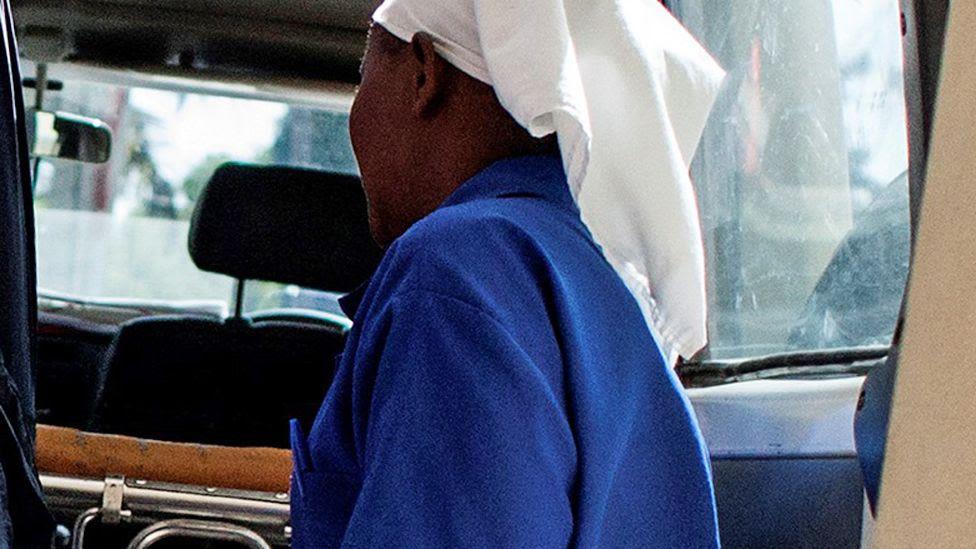Search results
Mozambique, [c] officially the Republic of Mozambique, [d] is a country located in southeast Africa bordered by the Indian Ocean to the east, Tanzania to the north, Malawi and Zambia to the northwest, Zimbabwe to the west, and Eswatini and South Africa to the southwest. The sovereign state is separated from the Comoros, Mayotte and Madagascar ...
- Overview
- Land
- Relief
Mozambique, a scenic country in southeastern Africa. Mozambique is rich in natural resources, is biologically and culturally diverse, and has a tropical climate. Its extensive coastline, fronting the Mozambique Channel, which separates mainland Africa from the island of Madagascar, offers some of Africa’s best natural harbours. These have allowed Mozambique an important role in the maritime economy of the Indian Ocean, while the country’s white sand beaches are an important attraction for the growing tourism industry. Fertile soils in the northern and central areas of Mozambique have yielded a varied and abundant agriculture, and the great Zambezi River has provided ample water for irrigation and the basis for a regionally important hydroelectric power industry.
Yet Mozambique’s turbulent recent history has kept its people from fully enjoying these natural advantages and from developing a stable, diversified economy. A former colony of Portugal, Mozambique provided mineral and agricultural products to its distant ruler while receiving few services in return. Following independence in 1975, Mozambique was torn by internal conflict as the Marxist government, supported in part by the Soviet Union and Cuba, battled anticommunist forces funded by South Africa and the former Rhodesia (now Zimbabwe) for control of the country. Marked by countless acts of terror, the ensuing warfare displaced at least four million people and resulted in the death of perhaps a million more as a result of the violence, famine, and disease it engendered. Violence and disunity hindered economic development, especially the broadening of tourism, and discouraged foreign investment. The conflict formally ended in 1992, but its lingering effects are many: in the early 21st century, as many as one million unexploded land mines still remained along the country’s trails and roads, and much political strife continued between the major opposition forces and the central government.
In 2005, as part of a torch relay program to mark 30 years of independence, President Armando Guebuza noted that the torch’s flame was a symbol of Mozambique’s history and would light the people’s path “to the consolidation of independence and construction of their well-being.” As the torch was passed to a Mozambican born in the year that the country gained its independence, Guebuza remarked
Handing this torch over to a youth symbolizes our certainty that the combat we wage against poverty will be continued by our young people, guardians of our glorious political, historical and cultural heritage.
The capital is Maputo. Known until independence as Lourenço Marques, the city boasts fine colonial-era architecture and an attractive natural setting alongside the deepwater harbour of Maputo Bay. Maputo is the commercial and cultural centre of the country, and its sidewalk cafés, bars, and discotheques offer some of the liveliest nightlife in southern Africa. Other major cities and towns, most of which lie on or near the Indian Ocean coast, include Beira, Quelimane, Chimoio, Tete, Nampula, and Nacala.
Britannica Quiz
Mozambique is about the size of the combined areas of the U.S. states of Colorado, New Mexico, and Utah; most of its territory stretches along the Indian Ocean coast from Cape (Cabo) Delgado in the north past the capital city of Maputo in the south. It is bordered to the north by Tanzania, to the east by the Mozambique Channel, which separates it from the island of Madagascar, to the south and southwest by South Africa and Swaziland, to the west by Zimbabwe, and to the northwest by Zambia, Malawi, and Lake Nyasa.
Exclusive academic rate for students! Save 67% on Britannica Premium.
Lowlands dominate the southern provinces, narrowing to a mere coastal plain north of the cleft where the Zambezi River cuts through the country’s midsection. The Zambezi valley, the lower section of which is a part of the Eastern (Great) Rift Valley, is Mozambique’s most dramatic geographic feature. Throughout the country the land rises gently from...
News about CNOOC Limited, Mozambique, subsidiaries
News about ADNOC, Mozambique, UAE
News about Mozambique, strike, opposition
Also in the news
May 15, 2024 · A comprehensive overview of Mozambique's geography, people, society, government, economy, and history. Learn about its location, climate, natural resources, ethnic groups, languages, religions, and more.
Explore Mozambique's coastline, culture, wildlife and adventure with Lonely Planet. Find attractions, activities, articles, guidebooks and more for your trip to this southeast African country.
Jan 3, 2024 · Mozambique (Portuguese: Moçambique) is a country on the Indian Ocean coast of Southern Africa. From the Monte Binga peak, 2,436 m (7,992 ft) high, to the stunning beaches along the coast, Mozambique is a country of contrasts. As well as some of the best colonial era architecture and relics to be found on the continent, Mozambique has also ...
Dec 28, 2021 · Mozambique is a poor, sparsely populated country with high fertility and mortality rates and a rapidly growing youthful population – 45% of the population is younger than 15. Mozambique’s high poverty rate is sustained by natural disasters, disease, high population growth, low agricultural productivity, and the unequal distribution of wealth.


